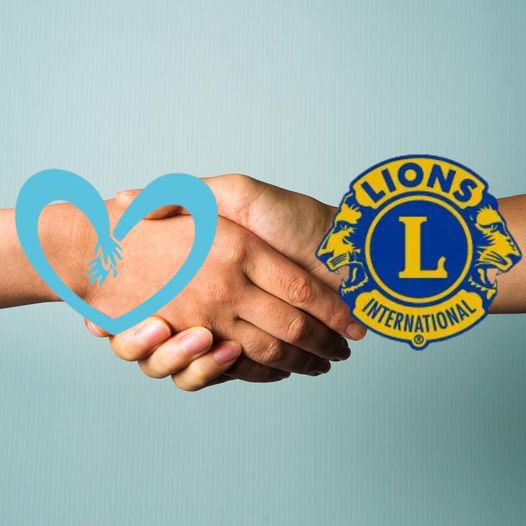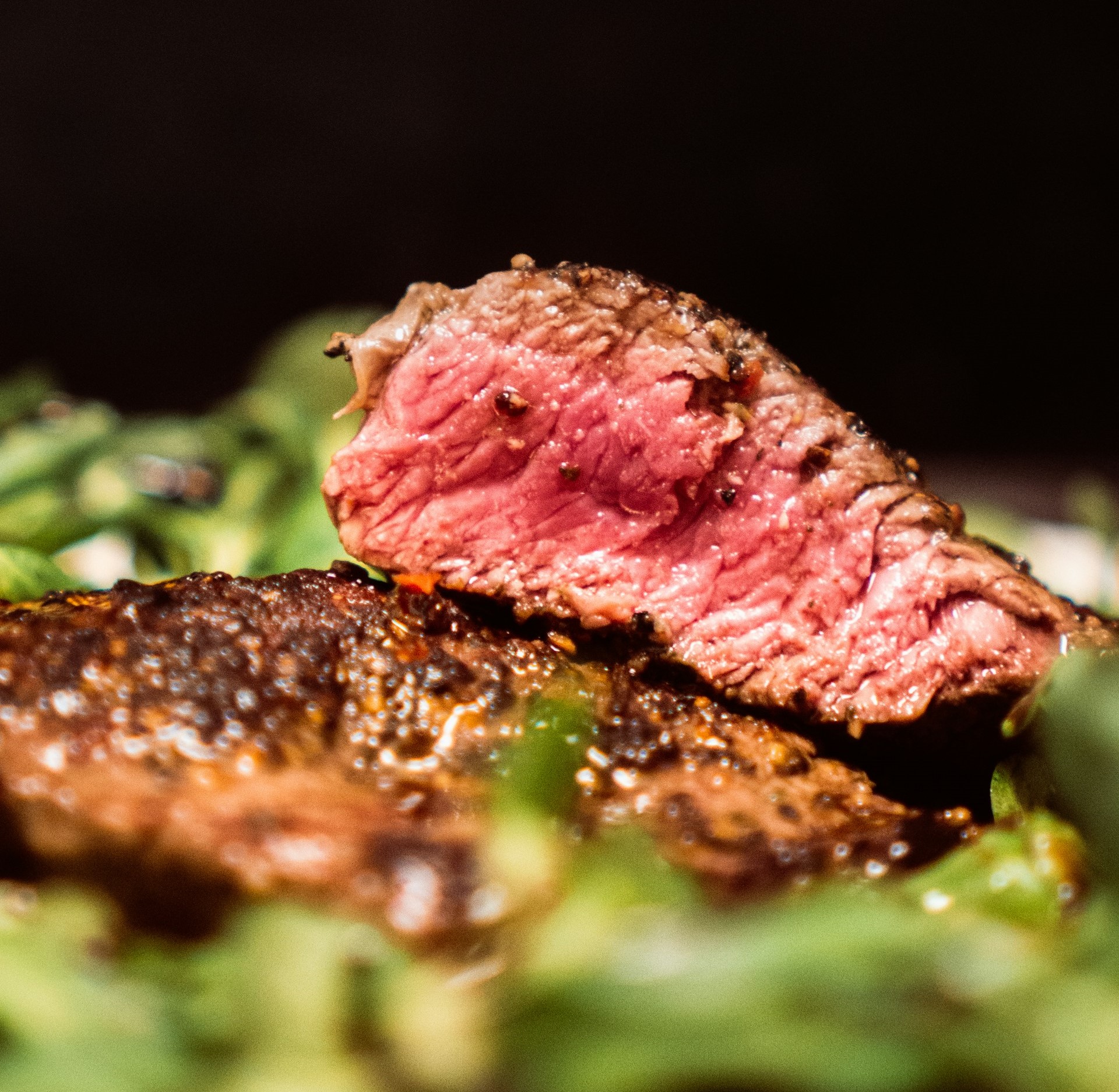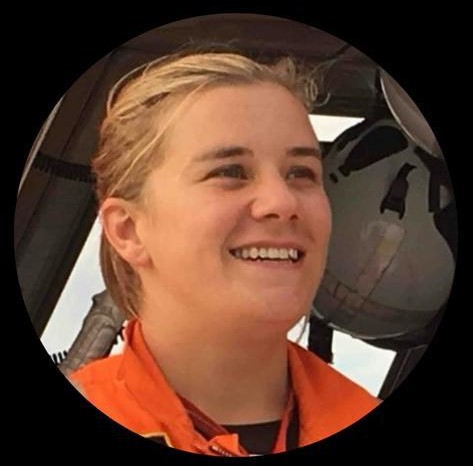The Billingshurst and District Lions have made Little LifeSavers their chosen charity to support for…
Coffee with the Founder of Little LifeSavers
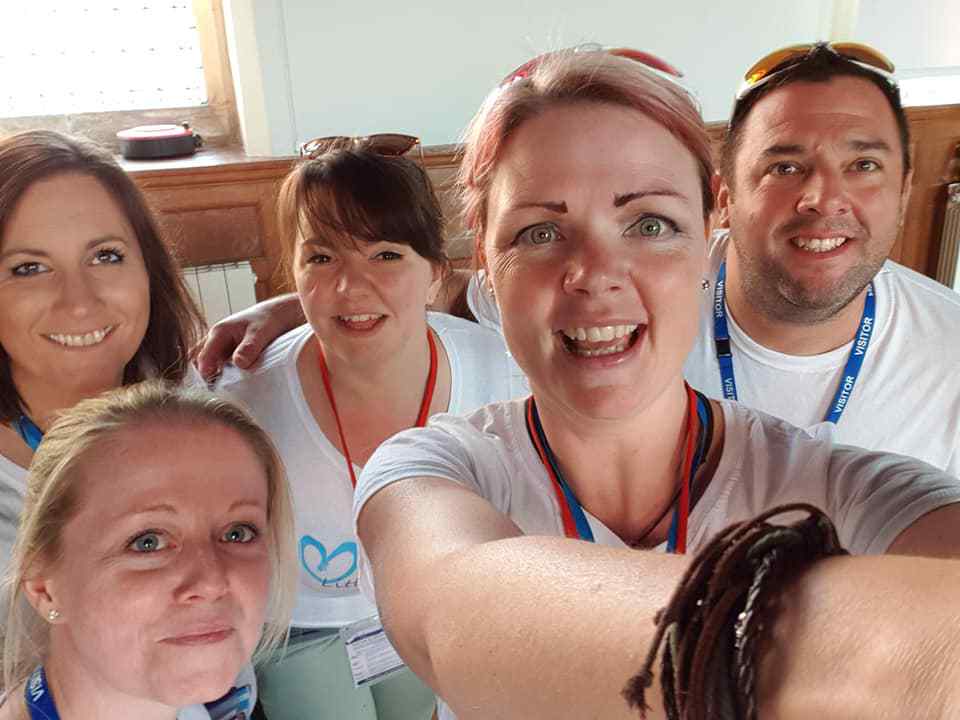
Barbara Stanley sits in front of me, nursing a cup of coffee. She laughs as one of her kids comes over and asks for another biscuit and she rolls her eyes in acceptance. Whilst Barbara has and has had many titles in her time – doctor, wife, mother, writer – she also goes by charity founder too.
Little LifeSavers is a charitable organisation that is committed to teaching children in schools aged 9-13 across the UK basic lifesaving skills.
Barbara is the life force behind the charity’s birth in 2016, and its ongoing success today. We catch up with her to kick off our ‘Coffee Club with Barbara’ series – an introduction to the face behind the hard work, and an insight into the powerful and inspirational team member who keeps us running.
Barbara, thank you for chatting with us today to help us get to know the founder behind Little LifeSavers. I suppose it makes sense to start at the beginning and ask, why did you start Little LifeSavers?
You know, it’s funny how a crazy combination of events coming together in 2016, kick-started something really good…
- I’d been a doctor for 16 years, which meant attending many cardiac arrests in the emergency department and it became obvious which casualties had received bystander CPR because they usually fared a whole lot better than those who hadn’t (who sadly often died in A&E). This stayed with me because it almost seemed like getting CPR was simply a lottery of chances, depending on who was around you at the time.
- Also around that time, there was a debate in the press about teaching first aid in schools and I’d read about Teresa Clarke MP’s 2014 private members bill to teach CPR in schools, getting filibustered by Shipley MP, Phillip Davies. I remember being disappointed because the bill wasn’t debated properly, so a piece of legislation that might save lives never got a chance.
- And thirdly during the Junior Doctors strike of 2016, I’d arranged a “meet the doctors” event and my colleagues taught CPR to the public. One was a year 6 boy at West Chiltington primary school and his headmaster got in touch asking if we would go teach all the class CPR.
So really, it was a “perfect storm” of firsthand experience (seeing what happens when no CPR is done), motivation (anger about something) and the sudden opportunity to take action all came at the same time.
Then as I was thinking about how best to deliver this session, I realised that it was actually important that everyone has these simple skills.
At the end of the day, if your relative collapses at home, I won’t be there, but you will.
So how do we get that knowledge into your mind (and everyone’s)? That’s when Little LifeSavers was truly born as a complete idea in terms of what, how and by whom.
Wow, what a combination of events… So you had the opportunity and everything seemed to be coming together, why did you set it up as a non-profit rather than a business?
Simple. Because it’s morally right to share this knowledge for free. I’m not interested in personal profit, which is why I don’t take a salary and that means when we ask the public to volunteer, I’m not asking for anything I haven’t done myself (I even donated for my own DBS check). Plus there are a lot of first-aid training providers out there that offer accredited courses. I wanted to simply share some basic knowledge – not offer qualifications, and this is the best way to do it and not step on the industry’s toes.
We need to work together because the bystander CPR rates in the UK – and survival for cardiac arrest outside of hospital – are really poor. By offering this to everyone regardless of ability to pay – we make simple knowledge AND a means to practice it, accessible to all and offer a double benefit. We teach the next generation that it’s the right thing to do to step up and help another person and we teach the current adult population simple bystander skills – as well as get them practising it. Using these skills “in the moment” so to speak, is all about confidence. And practice gives confidence. What better way to practice than by showing someone else?
We totally agree. So go on, what have been your best moments of the last 6 years?
So many. Watching the kids really get it; when they are engaged with the session and asking questions. And of course, when I found out two of the recipients of our training have used those skills to save a life. That’s when I knew we really were doing something good. But truly, every time I talk to someone and explain what we do, why we do it and how – when I see it dawn on them that this is for them and it’s not a huge commitment for them and they can get involved – that’s what keeps me going.
That sounds pretty special. But we can imagine there are also some challenges… what’s the most difficult thing about running a charity?
It’s the fact that charities are businesses that just don’t charge for their offering. So all the rules, legislation and framework are still required and oftentimes donors don’t want to know their money is used for a salary, to pay the bookkeeper, or for the website platform but without these things, we just cannot function. You get to a point where you simply can’t do all the work yourself and others can’t afford to help you for free- as much as they’d like to. So you have to employ people to help you day-to-day and that costs money.
So how can people help you?
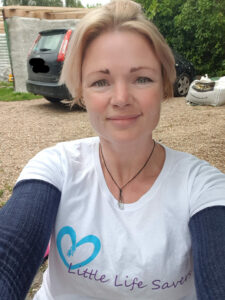
It’s so easy to help with this. Firstly- volunteer if you can. Volunteers deliver sessions when they can, so literally, if you EVER get a school day off – you can volunteer. Sessions are just over an hour of teaching time and we ask for a minimum of four a year – and that’s only to stop each session a volunteer teaches from feeling like it’s the first time.
Secondly, join my Founder’s Coffee Club! Because did you know that the price of a coffee is all it costs to train a child? And of course, now the organisation process is in place as we gain more volunteers and deliver more sessions, that cost will reduce – meaning we’ll be able to train more and more kids for the same sponsorship. Everyone who knows me knows I love a good coffee with friends, which inspired us to set up a “Founder’s Coffee Club” – our monthly sponsorship programme.
By joining it’s like “buying us a coffee” every month- except we spend it on creating Little LifeSavers (not on coffee 🙂).
And thirdly, just sharing the news of our work would help us enormously. We need people to tell their friends and shout about this on their social media. I think oftentimes people are under the impression that if they can’t donate or volunteer, they can’t help us. They CAN! Just follow and say hi to us on social media. Support us by telling people. This charity is all about people and it’s for everyone.
Finally Barbara…. You’ve taught over 9000 children so far. You must be proud of that achievement.
Really proud, but of course, I didn’t do it alone – so many brilliant people have helped and supported this. Without our volunteers, we’d never have achieved this much. But with over 3 million children in our target audience, there’s a lot more to do. We want every school in the UK to have a session for their year 5-8 children. Do you realise that if we had just three parents at every school, volunteering to teach a Little LifeSavers session just at their school – we’d achieve our mission and every child would be equipped to save a life?
Barbara, thank you for your time, can I buy you another coffee?
Oh, yes please! https://www.buymeacoffee.com/LittleLifeSaver
It truly is the people behind the charity that keep the vision alive and the pulse beating. ‘Coffee chats with Barbara’ will be coming again soon, so put the kettle on and keep your eyes peeled.

